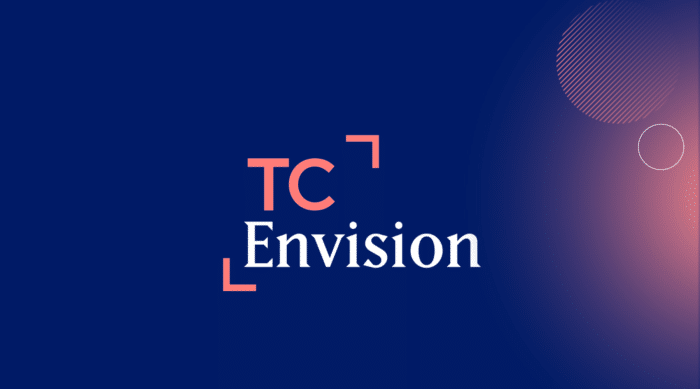Working from home was not just about assignments for Year 9s. They got paid for their work.
This year presented 2D students in small squares on a screen, sometimes only their names showing up, no image. “I’m having camera trouble”….”My microphone won’t work”…common phrases during remote learning. For some teachers, perhaps this was the dream – not worrying about the cacophony of a classroom, or the chaos of physical logistical management. In the TC Envision program we were relishing the opportunity in this online forum, to be a fly on the wall, witnessing some magic happening.
The program involves an assignment that pays, literally. It’s the incentive you’ve always wanted to give and the reward the students have always wanted to receive! Students prepare and run a small business, gaining the profits they earn over the space of six weeks. Ten percent of profits are donated to charity, and expenses, taxes and fees are charged to the businesses. Students are able to use their workshopped skills in ideation, marketing, sustainability, and business planning, to optimise the success of their business. The duration of sales this year, was a shift from past programs where businesses would prepare for a finite event or market stall, having only several hours to execute sales, and having fewer opportunities to improve on their product from feedback. The benefits of this longer-term project, were astounding.
The development in individual reflections, responses to feedback and data, and the ability of groups to troubleshoot and work together, were all heightened. From day 1, the ideas were thoughtful, not just a product, but a product for #covidtimes; for people in need – like the custom cards by Together Tea, sent with a message and a teabag to your loved one. Groups worked independently and as staff working online, we could move between the different businesses by dropping in and out of calls to provide assistance or simply observe. As well as positive relationship building, this allowed us to be where we were most needed, as students could call us into their group, easily, at any time. Without the typical on-campus distractions of groups needing to choose a place to sit, collect the materials required, getting distracted by other groups and procrastinating until the next bell…the business teams online demonstrated a drive to complete the set activities, with only themselves to coordinate the delegation and actioning of tasks. Teams were motivated not only by the possibility of earning profit, but by the classic dopamine rush of device notifications letting them know they’d received orders, completed a delivery, or received ‘hits’ online for their marketing posts.
This was the ultimate test. The learning was visible, tangible. The evidence of learning was the feedback in sales and relative ‘success’ of each business, but acutely, it was how groups dealt with situations to change the outcome, and the discussions that led to these. We witnessed groups in dilemma who needed to resolve conflict, having no choice but to learn how to approach a difficult conversation. We witnessed groups directly quoting tips to each other that they had learnt in their masterclass sessions on pitching, packaging, upcycling, customer profiling and branding. We witnessed teams collaborating in their ‘chat’, discussing in professional language, whether they were accurately targeting the most suitable audience for their product. The most satisfying learning to witness, was after several weeks of orders, when groups could compare income statements, and use data to identify how they could pivot their product and compete against other groups. Some groups improved efficiency by redistributing tasks, others discounted products to take more orders. Our Rocked group who sold rocky road, for example, found reliable, sealable packaging and took impressive photos to better market their product. Sometimes the smallest issues became the biggest discussions and the best outcomes.
For the majority of teams, the effort put in was the profit taken out. More effective discussions, quicker planning, greater collaboration and better customer service, were all rewarded with money. The most rewarding outcome from the teachers’ perspective, however, was not just the $9000 of sold items. It was seeing the group that persevered having struggled with tasks, eventually launching their product and making their first sale. It was the group that anticipated a loss of sales early on, and when faced with quitting, jumped whole-heartedly into creating and executing sales as a natural dog-biscuit company. Even the groups that appeared not to have a product, battled to take baby steps towards buying materials, keeping records and understanding their finances. Small wins and successes in their own right.
We are so immensely proud of what was achieved on every scale by our students this year. We realise that the money incentive was a winning starting point, but it was evident that once these girls started working in their teams, there was a strong sense of self-fulfilment, selflessness towards customers, and team loyalty week in and out. This is what drove each student to their own understanding of what success means to them, and what defined their business journey, not their business outcome.
Our students have probably already spent their earnings, but the confidence gained in collaboration and problem solving, will only grow from here.


